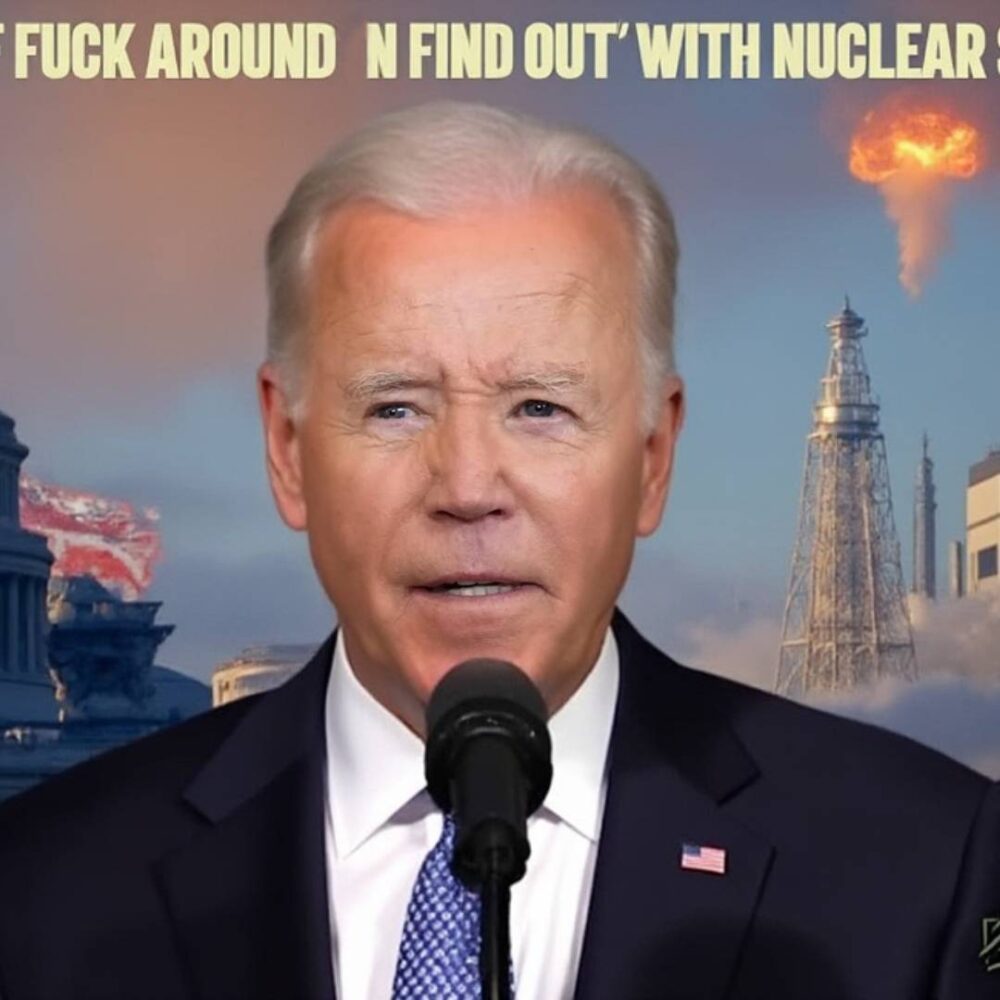
Biden’s Brinkmanship: A Game of “F Around and Find Out” with Nuclear Stakes
In an era where political drama often blurs with reality, President Joe Biden’s recent decision to authorize Ukraine’s use of U.S.-supplied long-range missiles against Russian targets has escalated tensions to a level reminiscent of a high-stakes episode from “House of Cards.” This move, while intended to bolster Ukraine’s defense, might inadvertently be playing into a narrative where “f-ing around” with nuclear powers could lead to catastrophic outcomes.
The Strategic Gamble
The Biden administration’s decision to allow Ukraine to strike deeper into Russian territory with American-made weapons like the ATACMS (Army Tactical Missile System) is a significant shift in policy. Previously, the U.S. was cautious, wary of escalating the conflict into a broader confrontation with Russia, a nuclear-armed state. This change in stance is justified by the administration as a necessary response to North Korea’s military involvement in the conflict, but it treads on thin ice. Russia has long warned that the use of such missiles would be viewed as a direct NATO involvement in the conflict, potentially justifying a nuclear response under their revised nuclear doctrine.
Echoes of Fiction: Political Maneuvering in the Shadows
This escalation could be seen through the lens of political strategy, where, like in “House of Cards,” the Democratic administration might be using the war as a tool to maintain power or influence. The show often depicted how war could be manipulated by politicians to either distract from domestic issues or as a means to secure emergency powers. The fear is that the real-world implications might follow suit, with the specter of martial law looming as a potential outcome if the conflict intensifies.
Martial law, while an extreme measure, has been historically implemented during times of national crisis or war. In the context of an escalating war with Russia, the rationale could be framed around national security, the need for swift and decisive action, or to manage internal dissent against the war. However, invoking such measures would likely meet with significant resistance and could dramatically alter the political landscape in the U.S.
Risks of Nuclear War
The phrase “f around and find out” encapsulates a dangerous game where the stakes are the highest possible—nuclear war. Russia’s new nuclear doctrine explicitly states that attacks supported by nuclear powers on Russian soil could warrant a nuclear response. By allowing Ukraine to use these missiles, especially if used against significant military or civilian targets within Russia, the U.S. risks crossing a threshold that could lead to an escalation beyond conventional warfare.
Public and International Reaction
Public opinion in the U.S. and globally could shift against such military escalations if they lead to direct confrontations or nuclear threats. There’s a palpable fear that the administration might be underestimating Russia’s reactions or overestimating its own control over the escalation ladder. The international community, particularly through bodies like the United Nations, would likely push for de-escalation, but the dynamics of such confrontations can quickly spiral out of control.
The Democrats’ Dilemma
If this strategic escalation is indeed part of a broader political strategy by the Democrats to consolidate power or influence the incoming Trump administration, it’s a high-risk play. Politically, it could backfire by painting the party as warmongers, potentially losing support among voters wary of military engagements, especially those with nuclear risks.
F Around and Find Out
The Biden administration’s decision to loosen restrictions on Ukraine’s use of U.S. missiles against Russia is a strategic pivot that carries with it the heavy weight of potential nuclear escalation. While it aims to fortify Ukraine’s position, it might also be laying the groundwork for scenarios where domestic political stability in the U.S. could be tested. The risk of “f-ing around and finding out” in this geopolitical gamble is not just about winning or losing influence but could very well determine the safety and security of the entire planet.
